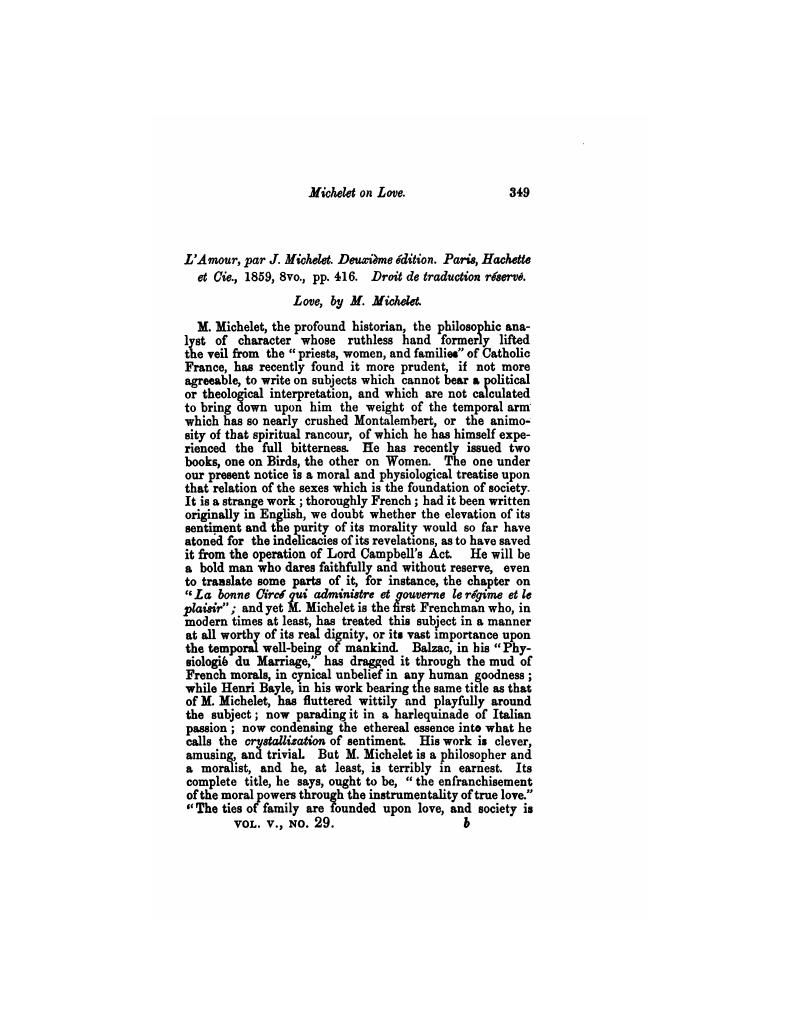No CrossRef data available.
Article contents
L'Amour, par J. Michelet. Deuxième édition. Paris, Hachette et Cie., 1859, 8vo., pp. 416. Droit de traduction réservé. Love, by M. Michelet
Published online by Cambridge University Press: 19 February 2018
Abstract

- Type
- Book Review
- Information
- Copyright
- Copyright © Royal College of Psychiatrists, 1859
References
∗ “Marriage is the mother of the world, and preserves kingdoms, and fills cities and churches, and even heaven itself. Celibate, like the fly in the heart of an apple, lives in perpetual sweetness, but sits alone, and is confined and dies in singularity; but marriage, like the useful bee, builds a house and gathers sweetness from every flower, labours and unites into societies and republics, and sends out colonies and feeds the world with delicacies, and obeys their king and keeps order, and exercises many virtues and promotes the interests of mankind, and is that state of good things to which God hath designed the present constitution of the world.”—Jeremy Taylor. Google Scholar
∗ “The stags in the Greek epigram, whose knees were clogged with frozen snow upon the mountains, came down to the brooks of the valleys, hoping to thaw their joints with the waters of the stream; but there the frost overtook them unii bound them fast in ice, till the young herdsmen took them in their stranger snare. It is the unhappy chance of many men, finding mnny inconveniencies upon the mountains of single life, they descend into the valleys of marriage to refresh their troubles, and there they enter into fetters, and are hound to sorrow by the cords of a man's or woman's peevishness.”—Jeremy Taylor. Google Scholar





eLetters
No eLetters have been published for this article.